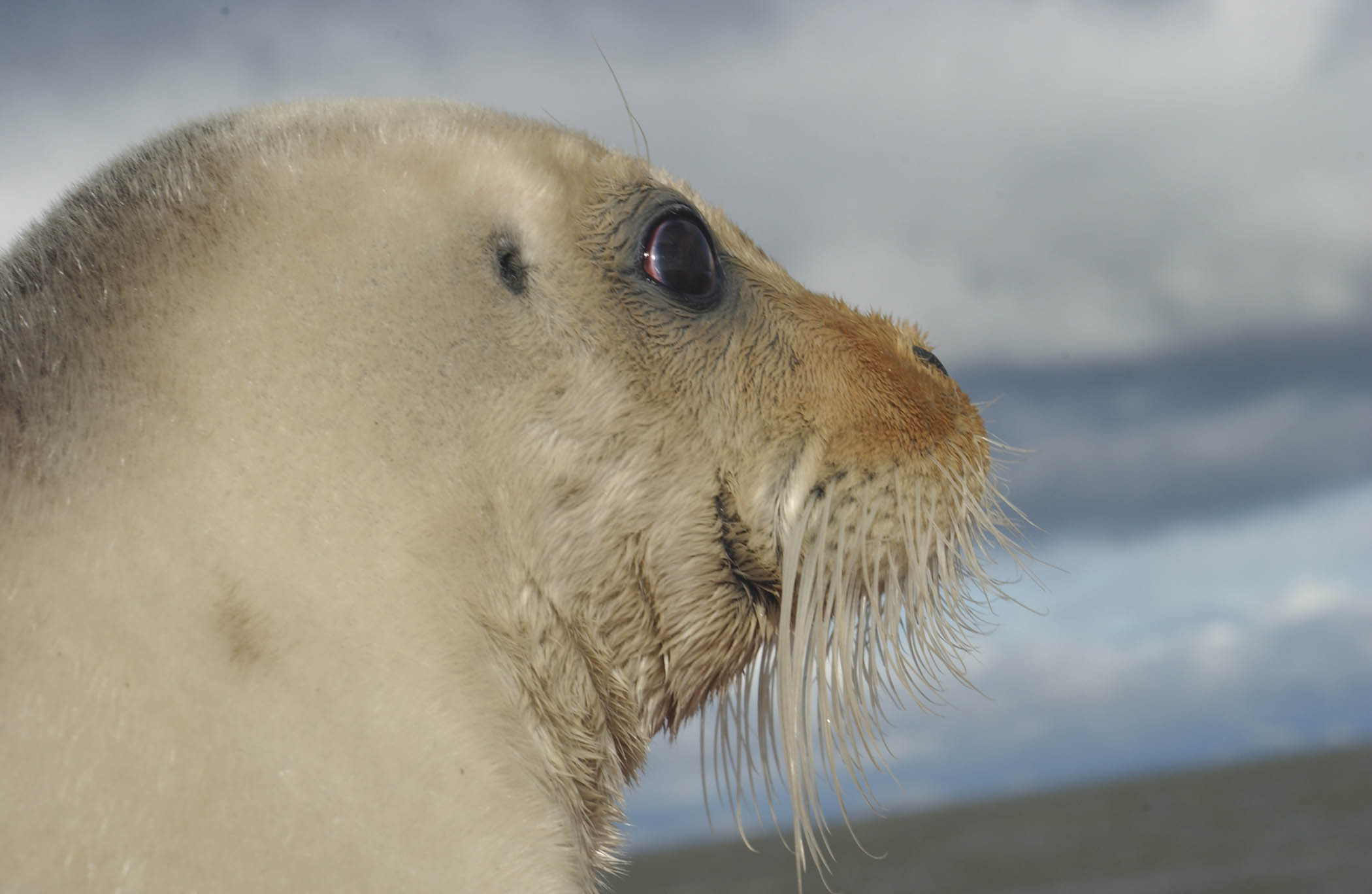Environmentalists sue to force critical habitat designation for ringed seals
The lawsuit is the latest in a legal struggle over ice-dependent seals that dates back to 2008.

An environmental group filed suit against the Trump administration on Thursday for what it alleges is an illegal neglect of duty to protect two species of seals that depend on Arctic sea ice.
The failure to designate critical habitat for ringed seals and bearded seals — species that are listed as threatened in Arctic Alaska — violates mandates of the Endangered Species Act and other federal law, said the lawsuit, filed by the Center for Biological Diversity.
The lawsuit, filed in U.S. District Court in Anchorage, seeks a court order mandating critical habitat designation by the National Oceanic and Atmospheric Administration’s Fisheries Service, also known as the National Marine Fisheries Service, or NMFS.
Critical habitat designations are required for populations listed under the Endangered Species Act. The delay in critical habitat designation, which has yet to happen even though ringed and bearded seals were listed as threatened in 2012, must be remedied by the court, the lawsuit argues.
“Until NMFS protects the ice seals’ critical habitat under the Act, the Center’s and its members’ interests in the species and their habitats are injured. These injuries are actual, concrete injuries presently suffered by the Center’s members. NMFS’s inaction caused these injuries, which will continue to occur unless this Court grants relief,” the lawsuit says.
[US Supreme Court won’t hear case to remove bearded seals from endangered list]
The lawsuit is the latest in a long legal history concerning ice-dependent seals that started with 2008 listing petitions and, at one point, was appealed to the U.S. Supreme Court, though it opted against hearing the case. Litigation prompted a settlement that resulted in listings, which were challenged in court by the state of Alaska, the oil industry, the North Slope Borough and other entities.
In 2014 the Obama administration announced plans to designate a wide area sprawled across the Bering, Chukchi and Beaufort seas as ringed seal critical habitat. The approximately 350,000-square-mile area, twice the size of California, was the largest critical habitat area ever designated. But that designation was overturned by a petition.
That designation was delayed by litigation challenging the listings. U.S. District Court rulings in 2014 and 2016 struck down the threatened listings for the bearded seal and ringed seal, but the 9th Circuit Court of Appeals in Court in 2016 upheld the bearded seal listing and in 2018 did the same for the ringed seal. Following that, NMFS last year said it was restarting its work to designate critical habitat for ringed seals.
[State of Alaska and partners seek to overturn ringed seals’ threatened listing]
The main threat to the seal populations is the warming Arctic climate and the disappearance of ice that they need for food-foraging, resting and raising pups, according to the listing documents.
The Center for Biological Diversity attorney filing the most recent lawsuit criticized the Trump administration for ignoring climate change.
“Ice seals’ homes are melting away while the Trump administration pretends global warming isn’t real. But the Endangered Species Act requires reality-based protection to prevent extinctions,” Emily Jeffers, a center staff attorney, said in a statement. “Ringed and bearded seals are at the mercy of an Arctic that’s heating up at twice the global rate. They need and deserve our help.”
Ringed and bearded seals, along with spotted seals, have been victims of an unusual die-off this year in northwestern Alaska that was first noticed in May. At least 60 dead seals have been found on northern Bering Sea and southern Chukchi Sea beaches. The new die-off follows an “unusual mortality event” that killed and sickened hundreds of seals, mostly ringed seals, from 2011 to 2016.
[Alaskans find more dead seals along warming Arctic seas]
While the Center for Biological Diversity is seeking more protections for ringed seals, the state of Alaska, North Slope Borough, oil industry and other parties are seeking action in the opposite direction.
Those parties in April formally asked NMFS to remove ringed seals from the list of threatened species, arguing in their delisting petition that the species is thriving despite the warming climate and dwindling ice.